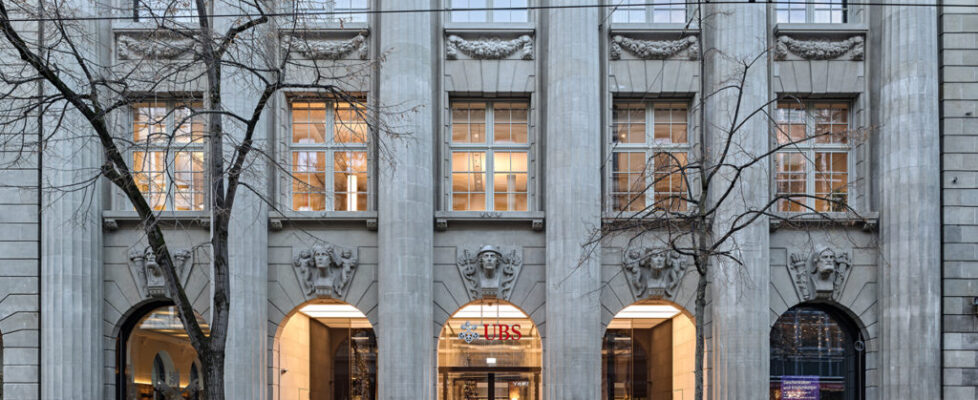UBS refuses to provide info about Forex fines in FX benchmark rate fixing case
More than five years have passed since a number of major banks, such as Citicorp, JPMorgan Chase & Co., and Barclays PLC, pleaded guilty to conspiring to manipulate the price of US dollars and euros exchanged in the FX spot market. The banks, as FX News Group’s readers may recall, agreed to pay criminal fines totaling more than $2.5 billion.
Some of the communications related to these fines are now sought as a part of the discovery in an FX benchmark rate fixing lawsuit. The case targets a number of major banks, including Chase, Barclays, and UBS. In this case, a putative class of consumers and end-user businesses allege that they paid inflated Forex rates caused by an alleged conspiracy among the defendant banks to fix prices of FX benchmark rates in violation of Section 1 of the Sherman Antitrust Act, 15 U.S.C. sec. 1 et seq.
A letter filed with the New York Southern District Court on October 13, 2020, highlights the ongoing discovery disputes in this case.
The plaintiffs insist that they are due documents showing the “methodology” used by the DOJ to calculate the defendants’ fines. According to the defendants, the banks also have to produce documents showing the “overlapping financial sanctions imposed by other regulatory and enforcement entities” argued by each defendant to minimize the DOJ fines. The same goes for defendants’ notes or memoranda reflecting communications with the US Government.
Barclays, Chase, RBS, Citibank, and UBS have all disclosed the existence of notes, the plaintiffs say. To the extent that these notes record, in sum or substance, or reflect what the DOJ gave or said to the defendants and what the defendants gave or said to the DOJ, they must be produced, according to the plaintiffs.
They state that the Court has said that the plaintiffs are entitled to have “documents that are either communications with the DOJ or that reflect communications with the DOJ leading up to the plea agreement.” To the extent that these notes record what was said to the government and what the government said to the defendants, these notes and memoranda would reflect communications that should be produced.
The plaintiffs insist that any efforts by the defendant banks to reduce the fines imposed upon them by other agencies for price-fixing in FX must be revealed if they were communicated to the DOJ.
The document filed with the Court on October 13, 2020, states that: “Defendant UBS has specifically refused to produce documents concerning communications about fines paid to ther Government agencies”.
“We believe that we must bring to the attention of the Court what, in the opinion of Plaintiffs, the Court overlooked and misapprehended with regard to the FX violations of UBS”, the plaintiffs say.
UBS had already violated the antitrust laws in the LIBOR case, the plaintiffs explain. Instead of a plea agreement, UBS was able to get a non-prosecution agreement with the government. If it violated the law again, that would be a breach and revocation of the non-prosecution agreement in LIBOR.
The letters by UBS to the DOJ that Plaintiffs have been seeking were attempts to convince the DOJ that their NPA in LIBOR should not be revoked because of their price-fixing of the foreign exchange rates. Therefore, the focal point of the letters was the FX violations, according to the plaintiffs. It is unknown whether the DOJ revoked the NPA in LIBOR because of UBS’ price-fixing of foreign exchange rates.
The Defendants assert that these letters did not involve FX conduct. According to the plaintiffs, this assertion is simply not true. They say that the letters summarized UBS’ views that the FX price-fixing did not warrant revocation of the NPA in LIBOR.
In December 2012, UBS Japan signed a plea agreement with the US government admitting its criminal conduct with regard to LIBOR manipulation, and agreed to pay a $100 million fine.
In addition, UBS AG, the parent company of UBS Japan headquartered in Zurich, entered into a non-prosecution agreement (NPA) with the government requiring UBS AG to pay an additional $400 million penalty, to admit and accept responsibility for its misconduct and to continue cooperating with the Justice Department. Back then, the DOJ said that the NPA reflected UBS AG’s substantial cooperation in discovering and disclosing LIBOR misconduct within the financial institution.
In May 2015, UBS AG greed to plead guilty to manipulating LIBOR and other benchmark interest rates and pay a $203 million criminal penalty, after breaching its December 2012 non-prosecution agreement resolving the LIBOR investigation.





